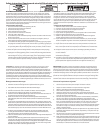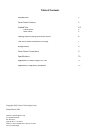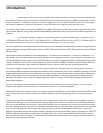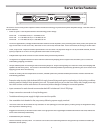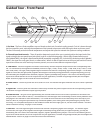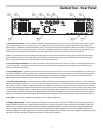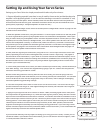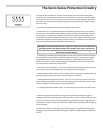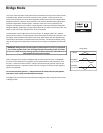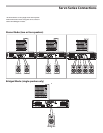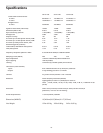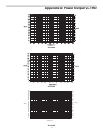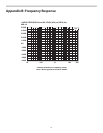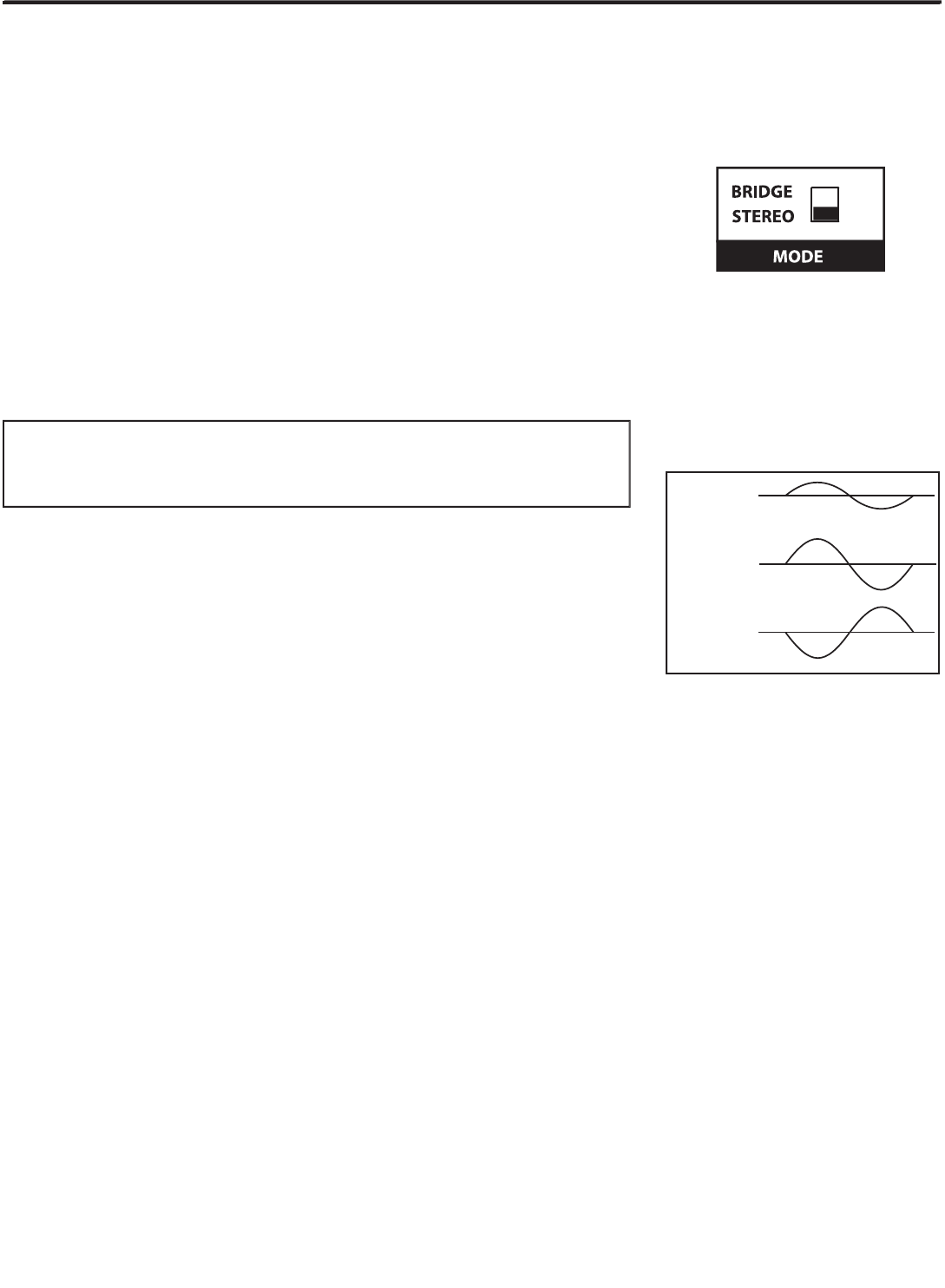
8
Bridge Mode
The Servo Series provides a rear-panel switch that allows it to be used in either Stereo
or Bridge mode. When this switch is placed in the “STEREO” (down) position, the
Servo Series functions as a true stereo amplifier, where both of the two independent
amplifier channels (Channel 1 and Channel 2) can receive different input signals and
produce independent output signals. However, when the switch is placed in the
“BRIDGE” (up) position, the Channel 1 input signal is routed to both power amplifiers
bridged together, producing a single output signal of 200 watts for the Servo 200, 300
watts for the Servo 300, and 600 watts for the Servo 600.
The illustration on the right shows how this works. In Bridged mode, the polarity
(phase) of the Channel 2 output signal is reversed relative to that of the Channel 1 out-
put signal. Both channels then process the same input signal, with the speaker load
connected so that power is derived from both channels. The effective voltage swing
seen by the load is thus doubled, so that the power output is multiplied by more than
two.
When using the Servo Series in Bridge mode, be sure to connect your loudspeaker
as shown in the illustrations on page 9 (and as silkscreened on the rear panel), with
the red (+) terminal of the Channel 1 output connected to the positive input of the
speaker and the red (+) terminal of the Channel 2 output connected to the negative
input of the speaker.
Do not use the black ground (-) output terminal of either channel (the speaker
load must “float” away from the amplifier chassis).
See pages 9 in this manual for interconnection diagrams when using the Servo Series
in Bridge mode.
WARNING: Bridge mode is to be used only when the Servo Series is connected
to an 8 ohm speaker load. Use of Bridged mode with speaker loads of 4 ohms
or less can result in severe damage to the unit due to excessive heat and current
limiting and will void your warranty!
INPUT
CHANNEL
1(+) OUTPUT
CHANNEL
2(+) OUTPUT
Bridge Mode




